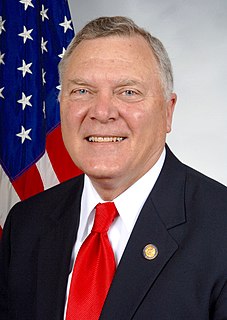A Quote by Will Durant
Science without philosophy, facts without perspective and valuation, cannot save us from havoc and despair. Science gives us knowledge, but only philosophy can give us wisdom.
Related Quotes
To recognize our bias toward error should teach us modesty and reflection, and to forgive it should help us avoid the inhumanity of thinking we ourselves are not as fallible as those who, in any instance, seem most at fault. Science can give us knowledge, but it cannot give us wisdom. Nor can religion, until it puts aside nonsense and distraction and becomes itself again.
Science is much more than a body of knowledge. It is a way of thinking. This is central to its success. Science invites us to let the facts in, even when they don't conform to our preconceptions. It counsels us to carry alternative hypotheses in our heads and see which ones best match the facts. It urges on us a fine balance between no-holds-barred openness to new ideas, however heretical, and the most rigorous skeptical scrutiny of everything - new ideas and established wisdom.
My position is a naturalistic one; I see philosophy not as an a priori propaedeutic or groundwork for science, but as continuous with science. I see philosophy and science as in the same boat--a boat which, to revert to Neurath's figure as I so often do, we can rebuild only at sea while staying afloat in it. There is no external vantage point, no first philosophy.
For myself, I am interested in science and in philosophy only because I want to learn something about the riddle of the world in which we live, and the riddle of man's knowledge of that world. And I believe that only a revival of interest in these riddles can save the sciences and philosophy from an obscurantist faith in the expert's special skill and in his personal knowledge and authority.
Science is expanding, and with it our vision of the universe. although this new and constantly changing view may not always give us comfort, it does have the virtue of truth according to our most effective resources for acquiring knowledge. No philosophy, moral outlook, or religion can be inconsistent with the findings of science and hope to endure among educated people.
Poetry is related to philosophy as experience is related to empirical science. Experience makes us acquainted with the phenomenon in the particular and by means of examples, science embraces the whole of phenomena by means of general conceptions. So poetry seeks to make us acquainted with the Platonic Ideas through the particular and by means of examples. Philosophy aims at teaching, as a whole and in general, the inner nature of things which expresses itself in these. One sees even here that poetry bears more the character of youth, philosophy that of old age.
Knowledge signifies things known. Where there are no things known, there is no knowledge. Where there are no things to be known, there can be no knowledge. We have observed that every science, that is, every branch of knowledge, is compounded of certain facts, of which our sensations furnish the evidence. Where no such evidence is supplied, we are without data; we are without first premises; and when, without these, we attempt to build up a science, we do as those who raise edifices without foundations. And what do such builders construct? Castles in the air.






































